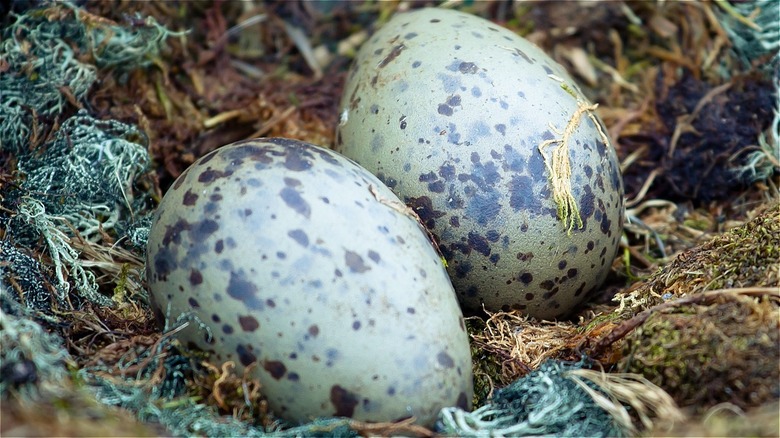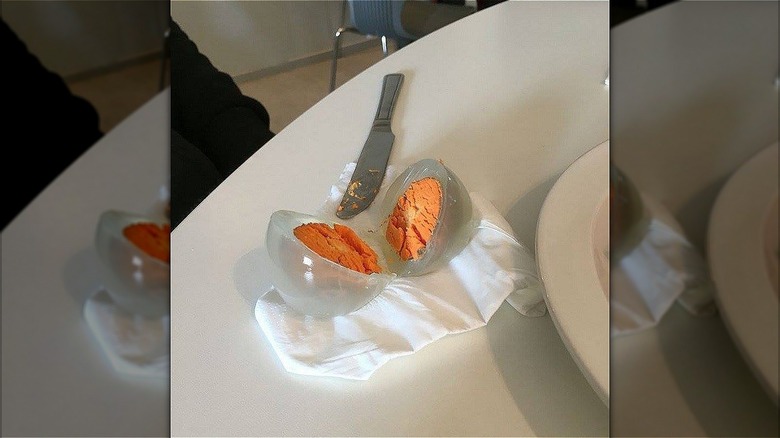Yes, You Can Actually Eat Penguin Eggs
If you've ever gazed into the doleful eyes of "Toy Story's" Wheezy, the comic strip world's Opus, or Hanna-Barbera's Tennessee Tuxedo, you may have wanted to pat them on their little heads or give them a big hug. It is highly unlikely that you licked your lips and thought, "Hm, I wonder what penguin tastes like?" Odds are that the thought of eating their eggs has never crossed your mind either.
Not only would penguin egg consumption make you unpopular with fans of "Happy Feet," but it could also land you in legal hot water. According to the Polar Guide Book, the Antarctic Treaty protects that continent's penguin and egg population and has been signed by a whopping 52 nations. While this treaty only offers protection to birds in Antarctica, many of the nations included in the treaty have adopted their own legislation to protect this species as well. With some large varieties like the Emperor Penguin only laying one egg per year (via SeaWorld), the human consumption of eggs could prove harmful to the species' population.
But, for a moment, pretend that penguins are abundant, it is legal to eat their eggs, and you possess no moral compunction about doing so. If you could boil, scramble, or use whatever way is your preferred method of cooking eggs to prepare a penguin egg, could you safely eat it?
Boiled penguin eggs look very unsightly
If you are able to push the images from "March of the Penguins" out of your mind and actually sit down to a meal of penguin eggs, you won't exactly be in for a treat. Yes, they are safe for human consumption and they have been eaten by Antarctic explorers through the ages, but no one would say they're on par with chicken eggs. Robert Headland, the Senior Associate of the Scott Polar Research Institute, tells IFL Science that these eggs have an extremely bright orange yolk and that the egg whites aren't actually white at all. They're clear. Yup, boil one of these babies up and they're see-through. Headland adds that they taste fishy and are really only palatable if you're starving.
Apparently, inhabitants of Antarctica's British Rothera Base used penguin eggs in the 1950s when their stored food ran out. According to Reuters, a cookbook at the base from that era showed that penguin egg omelets appeared on the menu. Plus, as the Polar Guide Book shares, Antarctic explorer, Jean-Baptiste Charcot, and his team lived off 8000 stolen penguin eggs, also noting the fishy taste and odd coloring.
Clearly, penguin eggs are fit for human consumption and quite capable of sustaining human life. One glimpse at that hard-boiled egg above, however, may make you quickly rethink your choice of breakfast food. That's a hard image to forget.

